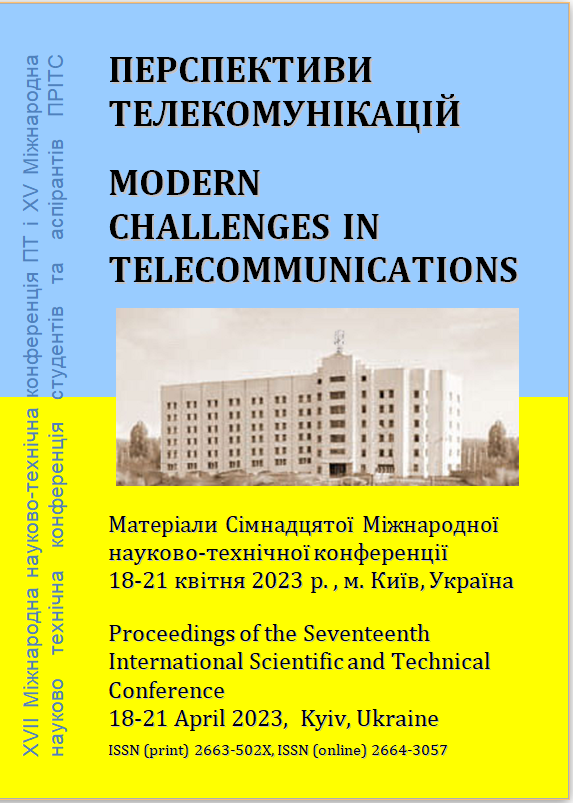ЕНЕРГЕТИЧНЕ ПРОГНОЗУВАННЯ ТА УПРАВЛІННЯ З ПІДТРИМКОЮ ІНТЕРНЕТУ РЕЧЕЙ ДЛЯ ГІБРИДНИХ МІКРОМЕРЕЖ
Анотація
Енергетика є однією з ключових галузей людства. На разі з розвитком «зелених» технологій особливого значення отримали гібридні мікромережі. Проте через складність функціональності та розширення гібридних мікромереж зростає попит в правильному прогнозуванні та швидкому управлінні енергією. Мета цього дослідження полягає в тому, щоб вивчити потенціал інтеграції Інтернету речей (IoT) у гібридні мікромережі для покращення прогнозування та управління енергією.Посилання
Al-Ammar, E., Al-Ammar, M., Al-Fahad, A., & Alsulaiman, A. (2020). A predictive model for energy demand in a hybrid microgrid using machine learning algorithms. Energies, 13(20), 5439.
Khodayari, A., Nazari-Heris, M., & Parastegari, S. (2019). A deep learning-based approach for energy management in a hybrid microgrid. Journal of Energy Storage, 23, 29-39.
Ma, Y., Zhao, J., Zou, J., & Xu, Z. (2020). Predictive control of energy management for a hybrid microgrid using a deep neural network. Journal of Energy Storage, 30, 101474.
J. Yamnenko, L. Globa, V. Kurdecha and A. Zakharchuk, "Data Processing in IoT Systems based on Fuzzy Logics," 2019 Modern Electric Power Systems (MEPS), Wroclaw, Poland, 2019, pp. 1-4, doi: 10.1109/MEPS46793.2019.9395055.
Globa, Larysa & Kurdecha, Vasyl & Popenko, Demyd & Bezvuhliak, Maksym & Porolo, Yevgeniy. (2022). Data Collection and Processing Method in the Networks of Industrial IOT. 10.1007/978-3-031-15101-9_11.
##submission.downloads##
Опубліковано
Як цитувати
Номер
Розділ
Ліцензія

Ця робота ліцензується відповідно до Creative Commons Attribution 4.0 International License.
Authors who submit to this conference agree to the following terms:a) Authors retain copyright over their work, while allowing the conference to place this unpublished work under a Creative Commons Attribution License, which allows others to freely access, use, and share the work, with an acknowledgement of the work's authorship and its initial presentation at this conference.
b) Authors are able to waive the terms of the CC license and enter into separate, additional contractual arrangements for the non-exclusive distribution and subsequent publication of this work (e.g., publish a revised version in a journal, post it to an institutional repository or publish it in a book), with an acknowledgement of its initial presentation at this conference.
c) In addition, authors are encouraged to post and share their work online (e.g., in institutional repositories or on their website) at any point before and after the conference.

